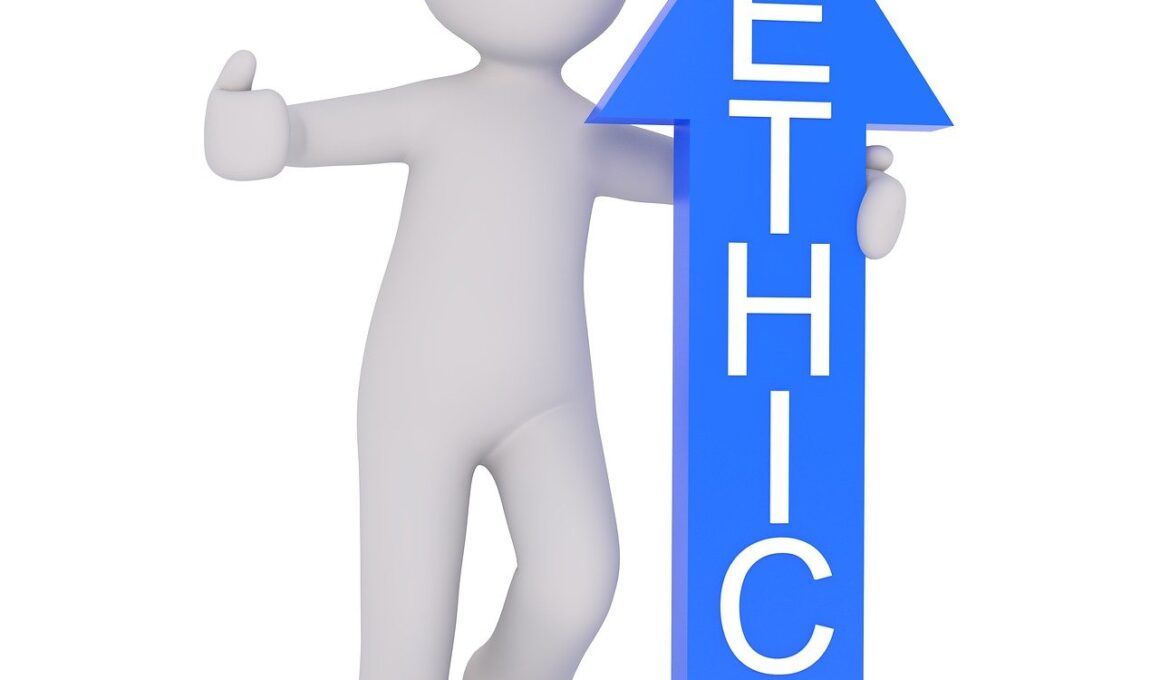Understanding Religious Ethics
Religious ethics serve as a fundamental guideline in various aspects of life, particularly in the realm of business. These ethics are rooted in belief systems that dictate what is seen as right or wrong within a community. For family-owned businesses, the impact of religious beliefs is often both profound and nuanced. Decisions made within these businesses frequently reflect the family’s religious values, shaping corporate culture and relationships with clients, employees, and suppliers. Business owners often encounter dilemmas where their ethical obligations must align with their religious beliefs, influencing their operational choices significantly. This intersection of faith and business raises questions about transparency, honesty, and fairness. Family businesses may prioritize ethical practices, such as equitable treatment of all staff, influenced by their religious teachings. Furthermore, these businesses often play a critical role in local communities, establishing trust and loyalty through ethical operations grounded in religious faith. Businesses may also face challenges when their ethics clash with prevailing market practices. Enhancing understanding of these religious ethics is essential to navigating the intricate relationship between faith and business. Awareness of these dynamics can lead to stronger ethical frameworks in business strategies, benefiting both family and community.
Cultural Influence on Business Practices
The cultural environment surrounding family-owned businesses significantly shapes their ethical beliefs and practices. Many family businesses operate in regions where specific religious guidelines dictate business etiquette and client interactions. These businesses often integrate cultural nuances into their operational philosophies, creating a unique blend of tradition and modernity. For instance, negotiations may be approached with a higher degree of trustworthiness and respect due to religious convictions that emphasize honesty. Family-owned firms frequently implement comprehensive training programs designed to instill ethical values aligned with their religious heritage. Employees are expected to embrace these values, allowing a cohesive company culture to flourish. Additionally, the perception of family-owned businesses in the community can be enhanced by their commitment to ethical practices influenced by religion. Engaging in community support initiatives, such as charitable donations or local partnerships, further highlights this commitment, improving community bonds. Furthermore, navigating existing legal frameworks while adhering to religious ethics can present challenges. Still, embracing such challenges often leads family businesses toward innovative solutions that honor both their faith and community needs. Such harmonious integration exemplifies the vital role of religion as an ethical compass in guiding business practices.
Religious ethics also significantly influence decision-making processes within family-owned businesses. Unlike larger corporations driven primarily by profit motives, family businesses often prioritize their core beliefs in religious teachings over financial gain. Key decisions, such as hiring new employees or selecting business partners, are frequently aligned with these ethical convictions. This alignment fosters a strong sense of identity and belonging among employees, who feel connected to the company’s mission. For example, a family-owned restaurant may source ingredients from local farms that share similar values, further promoting community welfare. Furthermore, this ethical framework aids in developing long-term relationships built on trust and mutual respect with clients and stakeholders. The practices adopted by these businesses often reflect a balance between traditional business acumen and a commitment to ethical principles rooted in their religious beliefs. Engaging in dialogues about these principles can enhance understanding among all employees, creating a shared vision of success. Integrating such conversations into regular business operations can lead to improved morale and alignment with the company’s mission. In this way, the intersection of religion and ethics in family businesses is not just a theoretical concept but a practical approach to everyday decision-making.
Challenges of Implementing Religious Ethics
Despite the advantages that religious ethics offer, family-owned businesses often face challenges in implementing them effectively. Balancing personal beliefs with external business pressures can create tension, particularly in competitive markets where ethical shortcuts may lead to immediate benefits. For instance, a family business embroiled in a competitive market may struggle between maintaining ethical pricing strategies and undercutting competitors to attract more customers. Furthermore, there may be internal conflict when younger generations within the family have different ethical perspectives, leading to disputes about the appropriate direction for the business. The challenge intensifies when the operational ethos must be reconciled with the evolving cultural landscape in which the business operates. This adaptation may require revisiting core principles and assessing how well they align with company goals. However, navigating these challenges allows family businesses to innovate ways to uphold their ethical commitments while remaining competitive. Indeed, embracing the complexity of these issues often results in stronger ethical frameworks. By doing so, family businesses can ensure they remain true to their religious foundations while adapting to changing market conditions. Striking this balance becomes vital for sustaining long-term success.
Another major aspect to consider is how religious ethics influence the relationships that family-owned businesses cultivate with their stakeholders. From employees and suppliers to customers and community members, ethical conduct often extends beyond mere compliance with the law. Family businesses tend to create environments rooted in mutual respect and shared values, informing their relationships in meaningful ways. This culture of trust often encourages open communication, allowing all parties to voice concerns and suggestions. Further, maintaining consistency between religious beliefs and daily operations cultivates a strong reputation within the community. Many customers appreciate the authenticity that family businesses convey, making them more likely to support such enterprises. Moreover, strong ethical practices based on religious teachings can sometimes act as a differentiator in the marketplace. Enterprises that openly communicate their values may attract clients who share similar beliefs, aligning both business and customer commitment levels. As competition grows increasingly fierce, this alignment can lead to sustained loyalty. Therefore, it’s critical for these businesses to articulate and emphasize their ethical guidelines to ensure stakeholders understand their commitments. The ripple effect of these relationships can strengthen the community, contributing positively to the business’s overall ethos.
The Role of Community in Religious Ethics
Family-owned businesses are intricately woven into the fabric of their communities, where religious ethics often play a pivotal role. These firms frequently engage in community development and support initiatives, strengthening their ties with local stakeholders. By embedding their operational ethics within the broader community context, they not only enhance their reputation but also promote shared values that are characteristic of their faith. Many family businesses contribute to local charities or participate in community events, reinforcing their commitment to ethical practices. This return to community can be seen as both a moral obligation and a prudent business strategy, establishing goodwill and loyalty among customers. Furthermore, fostering partnerships with local organizations allows family businesses to share resources, knowledge, and ethical philosophies, further reinforcing their role in the community. This reciprocal relationship encourages businesses to adhere strictly to their religious ethics, knowing that the community’s expectations often align closely with their values. Additionally, listening to community feedback can provide valuable insights, further improving ethical practices. Recognizing and valuing this connection emphasizes how intertwined religious ethics and community responsibility truly are in family-owned enterprises.
In conclusion, the integration of religious ethics within family-owned businesses reinforces their significance across various operational facets. Ethics derived from religious beliefs influence decision-making processes, employee relationships, and community interactions. For family businesses, these ethical frameworks are not merely theoretical constructs but practical guidelines for navigating daily challenges. While they face challenges of implementing ethical standards in competitive environments, the benefits derived from fostering a culture of integrity often outweigh the difficulties. Family-owned businesses have a unique opportunity to identify and adhere to ethical guidelines deeply ingrained in their beliefs. By remaining steadfast in their convictions, these enterprises can carve out a distinct and favorable niche in the marketplace, attracting customers who value ethical behavior. As communities become increasingly aware of ethical considerations, the importance of aligning business practices with religious values grows. Ultimately, this alignment not only leads to better business outcomes but also fosters stronger community ties, reflecting the success of integrating ethics within family enterprises. By focusing on establishing strong ethical foundations, family businesses can ensure longevity and impact for future generations.


